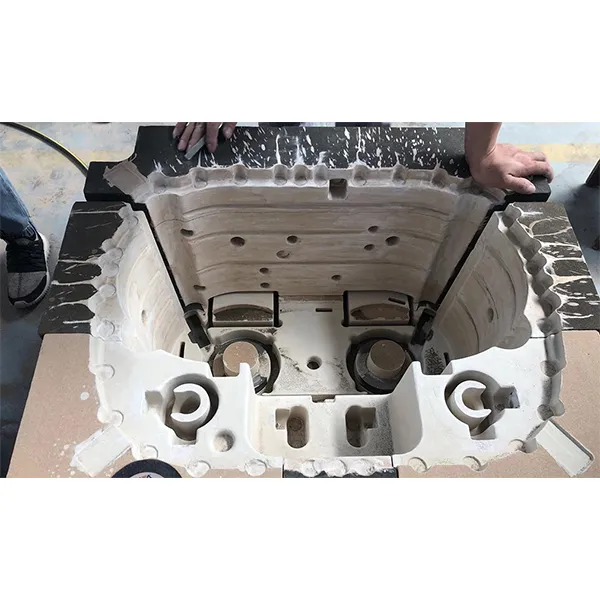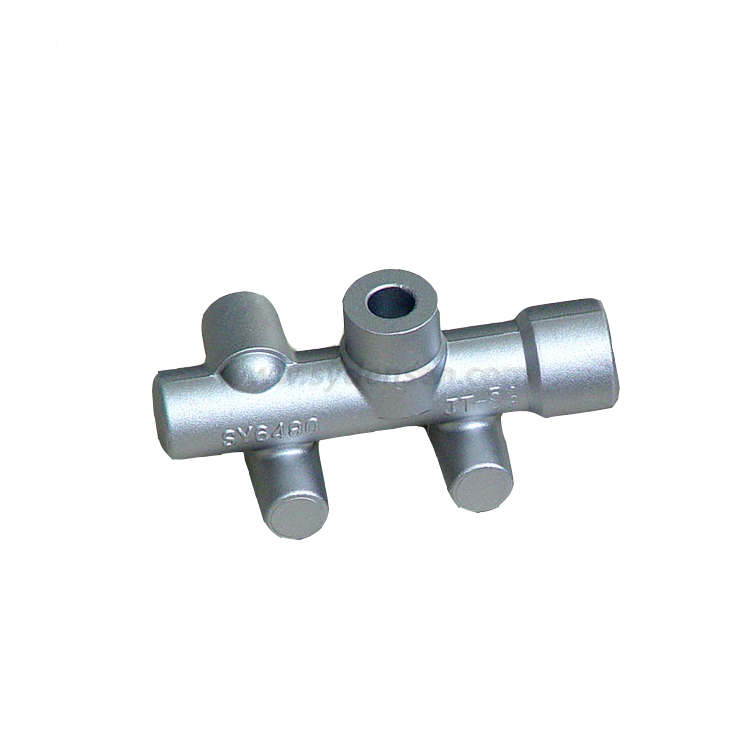The Function of Aluminum Foundries in Progressing Lightweight Manufacturing Solutions
Light weight aluminum foundries substantially add to the development of light-weight manufacturing remedies. Their cutting-edge casting modern technologies produce high-strength, lightweight parts crucial for markets such as vehicle and aerospace. This improvement not just boosts item efficiency however also promotes sustainability with the usage of recycled products. As these factories adapt to arising technologies and practices, they lead the way for future developments in manufacturing performance and environmental obligation. What exists in advance in this transformative trip?
The Benefits of Lightweight Products in Manufacturing
As industries increasingly seek performance and sustainability, the adoption of light-weight products in manufacturing has actually become an essential strategy - Precision aluminum casting. These materials, specifically light weight aluminum and compounds, provide countless advantages that enhance production processes and product performance. Primarily, their lowered weight adds to lower energy usage during transport and procedure, bring about substantial price financial savings
Light-weight products assist in the style of even more complicated geometries, enabling for higher advancement in product development. This versatility typically causes improved functionality and performance, dealing with the advancing needs of modern consumers.
In addition, the use of lightweight materials can enhance the durability of products due to their resistance to deterioration and tiredness. This toughness not only minimizes upkeep expenses but additionally supports sustainability efforts, as longer-lasting products add to much less waste. To sum up, the benefits of light-weight materials are crucial in driving effectiveness, advancement, and environmental obligation in production.
Innovations in Light Weight Aluminum Casting Technologies
Recent advancements in aluminum casting innovations are transforming the production landscape, especially in the manufacturing of lightweight parts. Developments such as high-pressure die casting and vacuum pass away casting have actually significantly enhanced the accuracy and surface finish of light weight aluminum components - aluminum casting. These methods enable the development of complex geometries while lessening material waste and improving mechanical buildings

Furthermore, the execution of real-time tracking systems guarantees quality control throughout the spreading procedure, bring about more regular product end results. Jointly, these developments not just improve the efficiency of aluminum parts but additionally sustain the market's shift towards more lasting manufacturing practices.
Applications of Light Weight Aluminum Elements in Various Industries
While light weight aluminum parts have actually long been used in different sectors, their versatility and lightweight residential properties remain to drive ingenious applications throughout industries such as auto, aerospace, and building. In the automotive market, aluminum is significantly made use of for engine blocks, wheels, and body panels, improving fuel performance and efficiency. Aerospace suppliers leverage light weight aluminum for airplane structures and components, taking advantage of its strength-to-weight proportion to improve gas economic climate and payload ability.
In the building and construction market, light weight aluminum is favored for home window frames, roof covering, and architectural components, offering sturdiness and resistance to rust while minimizing general structure weight. Furthermore, the electrical and electronic devices industries profit from aluminum's conductivity and light-weight nature, utilizing it in circuitry, enclosures, and warmth sinks. These diverse applications highlight the important function of aluminum components, which not only fulfill market needs however additionally add to improvements in product style and capability throughout several areas.
Sustainability and Energy Performance in Light Weight Aluminum Foundries
The light weight aluminum factory sector plays an important role in promoting sustainability and energy efficiency, particularly as need for lightweight parts continues to expand across numerous markets. Factories are significantly taking on eco friendly methods, such as utilizing recycled aluminum, which greatly lowers energy usage and greenhouse gas emissions compared to main aluminum production.
Furthermore, developments in casting modern technologies enhance energy effectiveness by enhancing the melting processes and reducing waste. Techniques like die spreading and financial investment spreading enable specific material use, minimizing excess and scrap.
In addition, numerous shops are purchasing eco-friendly power sources to power operations, better decreasing their carbon footprint. Implementing power management systems enables foundries to check and boost energy usage, ensuring they operate at peak performance.

Future Fads in Lightweight Production Solutions
How will emerging innovations form the future of light-weight manufacturing solutions? Developments such as innovative products, automation, and additive production are set to redefine production procedures. The assimilation of clever manufacturing technologies, including the Net of Things (IoT) and expert system (AI), will allow real-time monitoring and optimization, boosting performance and decreasing waste.

As sustainability proceeds to be a vital issue, light-weight options will significantly concentrate on read here reusing and reusing materials, lining up with round economic climate concepts. This advancement in light-weight manufacturing will certainly not just improve product performance yet additionally add to environmental goals, guaranteeing that the market remains competitive in check out this site a rapidly transforming market landscape.
Often Asked Concerns
How Do Aluminum Foundries Ensure Quality Assurance in Production?
Light weight aluminum shops guarantee high quality control in production with extensive testing, standard treatments, and constant tracking - aluminum casting. They implement competent employees and sophisticated modern technologies to preserve consistency, minimize issues, and fulfill sector criteria throughout the production procedure
What Are the Key Tests Encountered by Aluminum Foundries?
Aluminum shops face obstacles such as fluctuating resources prices, preserving production performance, guaranteeing consistent top quality, adjusting to technological developments, and meeting ecological guidelines, all of which impact their total operational effectiveness and competitiveness in the marketplace.
How Does Light Weight Aluminum Recycling Influence Factory Operations?
Aluminum recycling considerably improves foundry procedures by decreasing basic material costs, reducing power consumption, and lowering environmental impact. This sustainable technique enables shops to boost performance while meeting enhancing need for lightweight, high-performance aluminum items.
What Abilities Are Needed for Employees in Light Weight Aluminum Foundries?
Workers in light weight aluminum factories call for abilities in metallurgy, machining, quality assurance, and security practices. Effectiveness in running equipment, recognizing alloy buildings, and analytical are additionally necessary for efficient production and preserving high safety standards.
Just How Do Aluminum Foundries Handle Waste Administration?
Aluminum shops handle waste with recycling scrap metal, making use of efficient waste partition methods, and adhering to environmental laws. They apply sustainable practices to lessen landfill payments, making sure that hazardous products are dealt with properly.
Aluminum shops substantially add to Website the evolution of light-weight manufacturing solutions. Current advancements in aluminum spreading innovations are changing the manufacturing landscape, especially in the production of light-weight elements. While light weight aluminum parts have actually long been made use of in various sectors, their flexibility and light-weight residential properties continue to drive innovative applications across markets such as auto, aerospace, and construction. In addition, the electric and electronic devices sectors profit from aluminum's conductivity and lightweight nature, using it in wiring, units, and warmth sinks. The aluminum foundry market plays a crucial role in promoting sustainability and power efficiency, particularly as demand for light-weight elements proceeds to expand across numerous sectors.